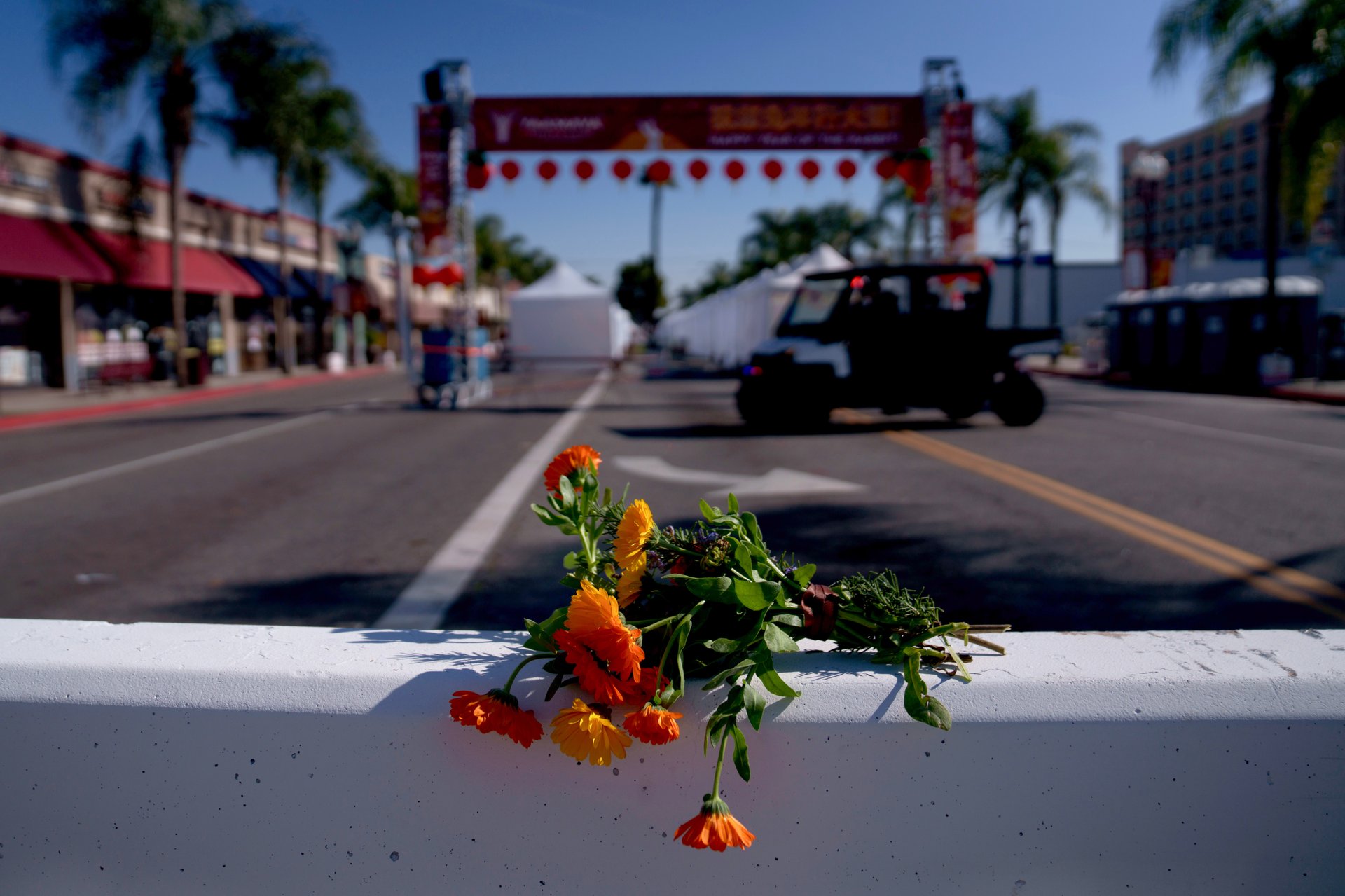🌎 An American tragedy mars Lunar New Year
Plus: New year, same censors

Good morning, Quartz readers!
Here’s what you need to know
A gunman shot 20 people at a dance studio in California. The 72-year-old suspect killed himself as police closed in on him following a manhunt.
Martin Shkreli needs to share more information about his new Web3 business Druglike. US regulators want to know if he’s breaching a lifetime ban on working in the pharmaceutical industry.
Activist investor Elliott Management took a multibillion dollar stake in Salesforce. The investment comes after the business software company underwent a round of mass layoffs and a change of leadership.
Amazon Web Services is investing $35 billion in new data centers in Virginia by 2040. The deal is expected to create 1,000 jobs in the state.
Brazil and Argentina are working on a common currency. The two nations are expected to invite other Latin American nations to join the ambitious project, according to the Financial Times.
Peruvian authorities have closed down Machu Picchu. Access to one of the new seven wonders of the world has been suspended as police tries to suppress anti-government protests.
New Zealand’s next PM will be Chris Hipkins. The former health minister, who led the country’s pandemic response, will succeed Jacinda Ardern.
What to watch for
Lunar New Year celebrations offer new opportunities for China’s internet censor to monitor and ban unwanted content. The first new year celebration to take place since the lifting of zero-covid restrictions is expected to see millions traveling to see family, but brings with it the possibility of a spike in covid cases and deaths.
The Cyberspace Administration of China—the country’s top internet regulator—wants to make sure that the narrative is tightly controlled through its recently inaugurated, month-long “Spring Festival internet environment rectification” campaign.
Among other things, censors have been ordered to erase “gloomy emotions” as part of their mission to “increase the rectification of pandemic-related online rumors.” Of course, Chinese authorities have carte blanche to deem anything inconvenient or unfavorable to the regime a “rumor.” Unfortunately, tragedies will unfold nationwide as covid rampages through communities. Whether those stories will be publicly told and remembered is another matter.
The American public weighs in on non-compete clauses
Earlier this month, the US Federal Trade Commission proposed a ban on non-compete clauses, a move that could impact as many as 30 million workers and increase their earnings by as much as $300 billion annually. Now, the agency is accepting comments from the public on the decision.
Here’s what some people had to say:
🚙 “My dad lost his job after his union failed to reach an agreement with his previous employer, but because the old contract had a non-compete clause he was unable to work around our home. As a result, he now drives 50 miles across the state border for his current job.” —Jennifer Lee, Illinois
🩺 “Current non-compete causes force physicians to leave our state if they want or need to change jobs. This worsens our state’s physician shortage, and discourages providers from moving to the area.” —David Kenneally, Nevada
✋“Imagine that, wanting to work, being great at your job, being wanted by another employer, but being forbidden to change jobs. It’s the opposite of the American dream.” —Susan Wheeler, Montana
You reap the health that you sow
When trying to eat healthy, we often tend to look at the produce itself, but the quality of the soil in which it was grown is more indicative of a plant’s nutritional value.
For decades, farmers have leaned on chemical fertilizers and pesticides to yield larger amounts of monocrops. The more robust harvests help farmers pay back start-up loans and turn profits. But decades of chemicals have ruined soils, making them less capable of providing nourishment for the crops, and lessening their nutritional value as a result. They also can have adverse effects on humans.
Transitioning a conventional farm to a regenerative one requires an initial investment and about three years of development, but the long-term benefits are real—for produce, people, and planet, as Clarisa Diaz finds in her latest piece for Quartz.
✦ Love stories like these? Help keep content like this free and accessible to all by getting a Quartz membership. We’re offering 50% off.
Surprising discoveries
A cane toad discovered in Australia might set a new world record for its size. You’ve heard of Godzilla, now meet “Toadzilla.”
Ludwig van Beethoven didn’t dedicate “Für Elise” to anyone in particular. The popular piece of music got its name decades after the musician had died, according to a new book.
Rising egg prices caused a spike in smuggling. The US border force reported a 100% increase in the interception of the delicate, and forbidden, cargo.
The 500-year-old “Leonardo’s paradox” has been solved. Or so think the scientists who have reached their very own Eureka moment about the motion of bubbles in water.
A man survived 24 days adrift in his boat on a seasoning diet. Elvis François consumed ketchup, garlic powder, and stock cubes throughout the ordeal.
Our best wishes for a productive day. Send any news, comments, giant amphibians, and unnamed music sheets to [email protected]. Reader support makes Quartz available to all—become a member. Today’s Daily Brief was brought to you by Mary Hui, Diego Lasarte, Clarisa Diaz, Sofia Lotto Persio, Zach Seward, and Julia Malleck.